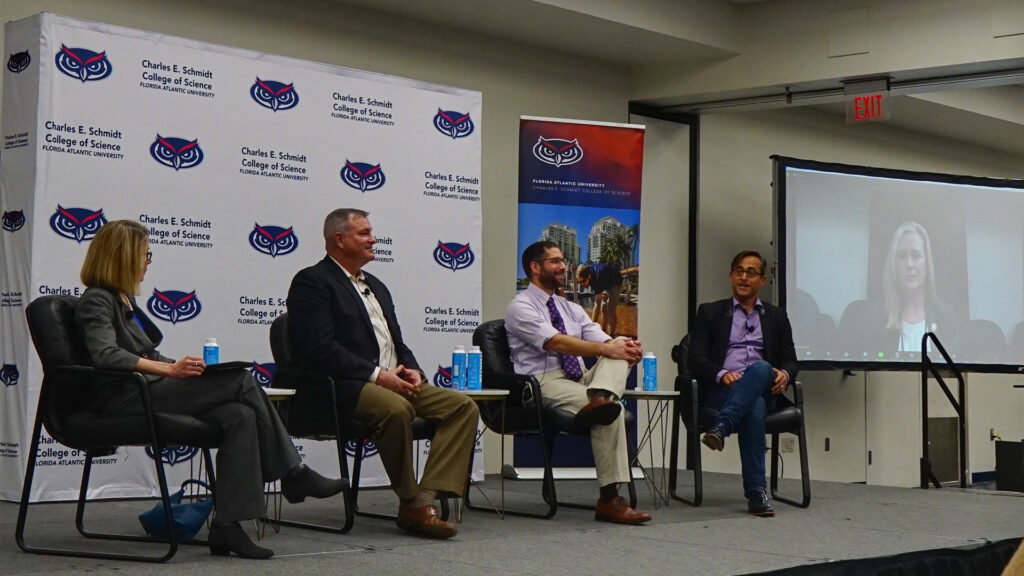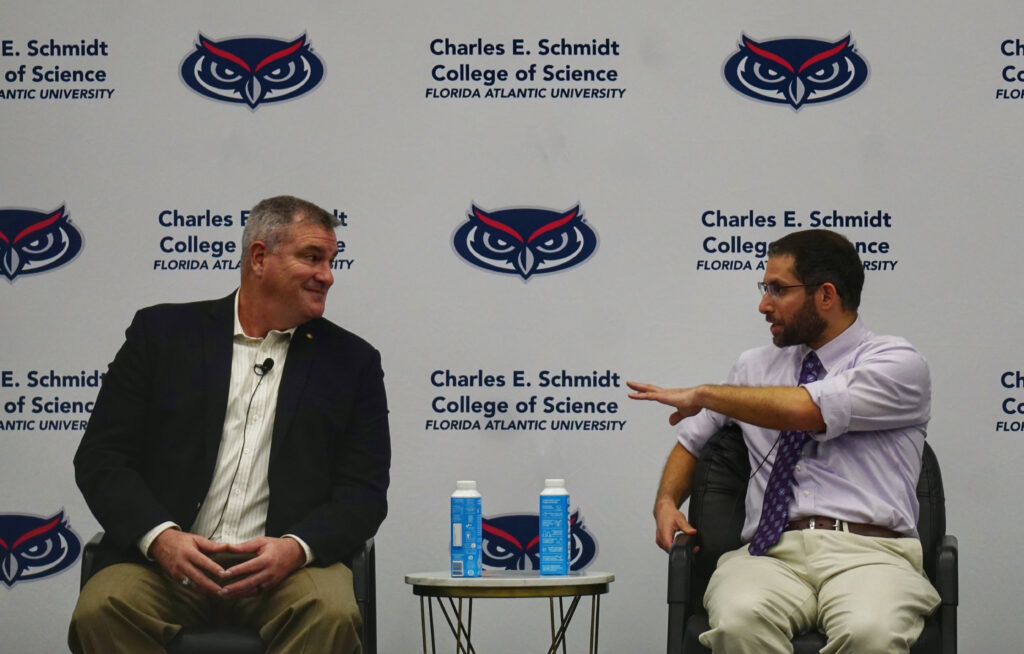By Bella Kubach, The Invading Sea
The Florida Wildlife Corridor is envisioned as nearly 18 million acres of connected lands and waters that provide passage for essential species, but it also provides other benefits.
Providing resilience to climate change is one of those benefits, according to the speakers at a recent Florida Atlantic University panel discussion.
State Rep. Lindsay Cross, D-St.Petersburg, said the corridor protects plants that store carbon, keeping it out of the atmosphere, while also shielding Florida’s coasts from hurricanes and other storms.

“When we look at things like coastal wetlands, and things like mangroves and seagrasses, we know that they have the ability to buffer some of the impacts from storms,” Cross said.
Cross was among the speakers at a panel discussion on the Florida Wildlife Corridor held Thursday as part of FAU’s Frontiers in Science public lecture series. The corridor covers nearly 18 million across the state, about 8 million acres of which still need to be protected.
As Florida’s growing population causes more land to be developed, the corridor is intended to connect Florida’s undeveloped lands, keep habitats intact and protect Florida’s water supply. Wildlife such as the Florida black bear and the endangered Florida panther roam over large ranges of land that the corridor is intended to keep from further fragmenting.
The corridor helps protect 131 imperiled animals as well as 69 species of threatened or endangered plants, according to the Florida Wildlife Corridor Foundation. Joshua Daskin, director of conservation at the Archbold Biological Station, noted the crucial habitats that are a part of the corridor.
The corridor allows wildlife “to sort of make up their own mind and find the places that are still available for these species as habitats” in Florida’s “sea of development,” Daskin said.
The corridor is made up of almost 10 million acres of already conserved lands including the Apalachicola National Forest, Everglades National Park, Myakka River State Park and Ocala National Forest. The protected areas include military installations such as the Avon Park Air Force bombing range.
There’s “surprising synergy between the Department of Defense’s mission and the natural environment,” said Charles “Buck” MacLaughlin, range operations officer of the base.

McLaughlin said the range’s habitats benefit from the ability to have prescribed burns and other fires there, which are an important tool for maintaining the health of natural landscapes in Florida. The range provides space both for military training and wildlife, he said.
“Our men and women in our military need that freedom of maneuver to train like they fight,” he said. “That’s the same freedom to maneuver that our wildlife depends on so much.”
The Florida Wildlife Corridor Act passed unanimously in 2021. FAU’s Colin Polsky noted the rarity of unanimous support for such significant legislation.
“This idea has a lot of appeal and a lot of traction,” said Polsky, professor and founding director of FAU’s School of Environmental, Coastal, and Ocean Sustainability (ECOS). “So, my sense is that it has (as) good (of a) chance of continuing to succeed as any other topic in the environment, especially in Florida.”
Cross said Florida has relied on “good messengers” to convey the corridor’s importance.
“We know it’s based on science. There’s validity to the decision. There’s been a good message that connecting lands in a strategic way is best for our state,” she said. “It will support our water, our wildlife and our way of life.”
Bella Kubach is a Florida Atlantic University senior majoring in multimedia journalism who is reporting for The Invading Sea during the spring 2024 semester. The Invading Sea is managed by FAU’s Center for Environmental Studies, which is part of ECOS.
Sign up for The Invading Sea newsletter by visiting here. If you are interested in submitting an opinion piece to The Invading Sea, email Editor Nathan Crabbe at ncrabbe@fau.edu.



